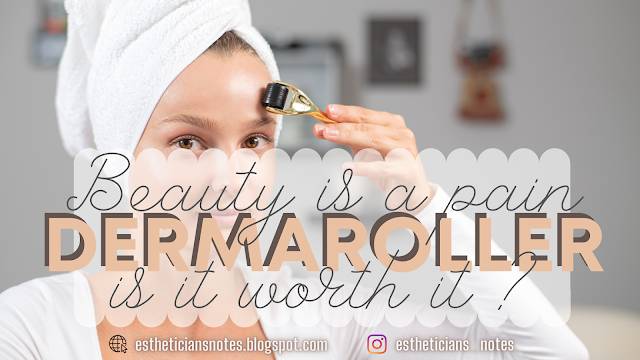Welcome to the Kingdom of beauty! I'm going to take you on a journey to the world of skincare. You can find answers here to troublesome questions, interesting beauty ideas, wise skincare tips, and fascinating titbits of news. In a world filled with fake news, I intend to find out the truth about beauty therapy! You just got access to esthetician's notes!
Featured
- Get link
- X
- Other Apps
Vitamin C in cosmetics
In my last post about retinol I promised, to write about the
use of vitamin C in cosmetics.
Why the sudden popularity of Vitamin C? Is it worth trying? What is the
indication for vitamin C in skin therapy?
Vitamin C is listed as ascorbic acid among cosmetic constituents. It is one of the
few vitamins used in anti-wrinkles creams, because of its antioxidant effect. Vitamin
C neutralizes free radicals and in doing so protects skin cells from the
oxidation process.
(Free radicals are formed internally or externally by air pollution or smoking cigarettes)
Vitamin C is good for all types of skin, especially for mature and sensitive
skin, because of an anti-inflammatory action. It can however also cause skin
irritation, because some of the products which are containing vitamin C, have low
pH levels and increase vitamin C activity. As long as vitamin C is recommended for
everyone, not every product containing vitamin C will be suitable for every
skin type.
Topical vitamin C restores collagen synthesis and reduces the number of sunburn
cells. It extends the shortest exposure time to UV radiation – extends minimal erythema
dose.
It strengthens skin by stimulating synthesis of skin ceramides. Helps rebuild
the protective barrier of the epidermis. Vitamin C strengthens the walls of blood
vessels.
Vitamin C is also great for people bothered by pigmentation. It is well known for
brightening discoloration and improving mottled hyperpigmentation.
Most of the products with vitamin C will have an oily consistency, which allows for
ease of absorption. There are water-based products with a low pH available.
Vitamin C and Retinol should not be used simultaneously.
Always use SPF while using vitamin C.
Do you use vitamin C serums or products?
- Get link
- X
- Other Apps
Popular Posts
Digital marketing campaign in the beauty industry through the eyes of a cosmetologist
- Get link
- X
- Other Apps



Comments
Post a Comment